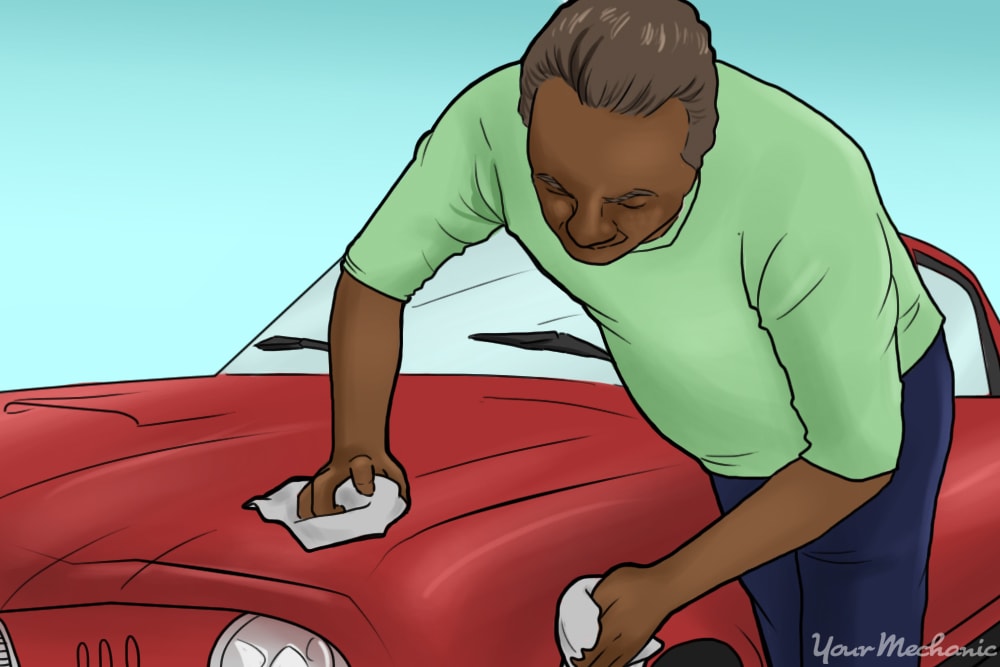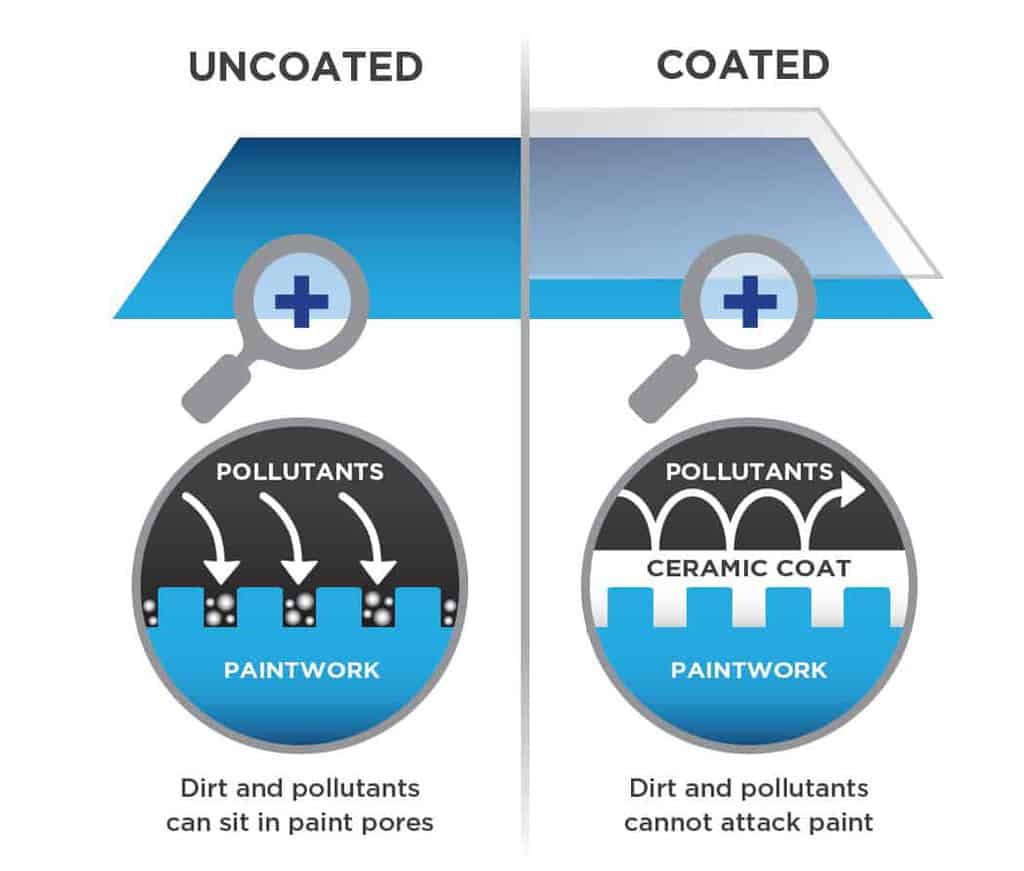

If you’re a fan of keeping your car’s exterior clean and shiny, then you’ve probably heard of a ceramic coating. A ceramic coating works as a protective layer for your car’s paint — similar to car wax or sealant but designed to last longer.
As a liquid polymer, ceramic coatings actually bond to the paint and act as the first line of defense against scratches, dirt, and water. They typically have a resin or quartz base that uses nanotechnology to spread thinly across your car’s surface and fill in all the minuscule pores within the paint. Its liquid state evaporates quickly to leave a sheer outer layer.
 Image Source: Avalon King
Image Source: Avalon King
Ceramic coating can distinctively enhance the appearance of most cars. To achieve the gleaming look, however, the paint itself cannot be too thin and must be free of defects. Otherwise, the clear coat will lock in debris and other marring features.
When a ceramic coating is applied properly, it provides 4 benefits to the car exterior’s longevity.
1. Longer-Lasting Coating
Car owners add coatings to their vehicles to protect their car’s paint. Paint coatings can last anywhere from one to three years depending on the brand. High-quality ceramic paint coatings can protect your paint for up to five years before needing replacement, and might even come with a warranty. Wax and sealants only last a few months at the most.
While a ceramic coating provides the longest lasting shine, it does require the most time to apply. The application process involves a thorough cleaning of the car’s surface of any dirt, debris or even swirl marks, and then an easy application of the glaze.
2. Acts as a Protective Coating
A ceramic coating provides paint protection by acting as a shell against a variety of paint-damaging sources:
- Water: Since the ceramic coating is hydrophobic, the car’s surface will shed water and bead instead of causing paint damage from water spots and accumulated moisture.
-
Chemicals: Some chemicals, like those found in bird droppings, generic cleaners, gasoline, brake fluid, shoe polishes, and shaving cream can be highly damaging to car paint. A ceramic coating takes the beating of these chemical products first — preventing the paint from fading or peeling off.
- UV Rays: Ultraviolet (UV) rays can oxidize and fade car paint, or even contribute to rusting. A ceramic coating prevents the car from looking more aged than it is.
- Scratches: Though often advertised as scratch proof, ceramic coatings are only scratch resistant — which is still hugely effective against minor scratches from bushes, small brushes with bikes, or even people passing by. They won’t protect your exterior from rock chips at highway speed or car keying.
3. Car Stays Cleaner Longer
A ceramic coating causes debris, liquids, and chemicals to bounce off the exterior more easily instead of damaging it. The car seems cleaner because dirt has a harder time sticking to the surface.
This doesn’t mean your car never needs washing. You won’t have to wash your car as frequently, but roads still contain dust and grime that will build up over time. Additionally, the car wash will not require a ton of effort on your part — dirt should come off without much resistance.
4. Enhances the Look of Paintwork
Cars with a ceramic coating will shine and look closer to new for longer periods of time. Their translucent, second-skin nature will protect a fresh paint job on a new car and keep it looking glossy.
However, this sparkling appearance can only be achieved if the proper prep work was done before the coating was applied. Faded paint, haze, or swirl marks will still be present if they were not taken care of before the ceramic application — though they will still shine.
Application Time and Cost
With a ceramic coating’s many perks, there remain two notable drawbacks: application time and price. These vary depending on whether the coat was applied by a professional or a Do-It-Youselfer. A professional application typically starts at $500 and can rise to several thousand dollars depending on the labor-intensity of the prep work. DIY folks can purchase ceramic coating kits that range from $20-$150. The kits let consumers protect their cars against the elements with some additional shine, but not to the extent of a professional job.
Adding a ceramic coating to your car has several benefits to the longevity of your car’s exterior and its appearance. Previously a luxury few could afford, there exist many DIY kits for applying a ceramic coating. The job still takes time, but it offers several advantages along with it. Good nano-coating kits have a high hardness rating, with the highest being 9H, and last more multiple years. Several of the most reliable coatings kits include:
-
Avalon King Armor Shield IX DIY Kit: As one of the best kits out there, the Armor Sheild IX costs $70 and lasts 3 to 5 years on average with a 9H rating.
- CarPro Cquartz 50ml Kit: The CarPro Quartz kit is super simple to apply and provides reliable protection at $76.
- Color N Drive Car Ceramic Coating Kit: At $60 the Color N Drive Car Ceramic Coating kit features a 9H rating and remains solid for 100-150 washes.



